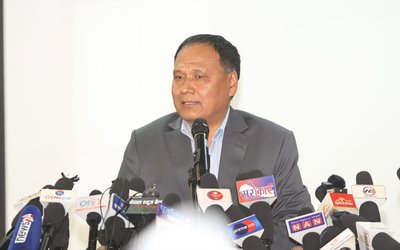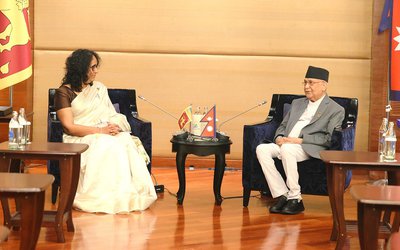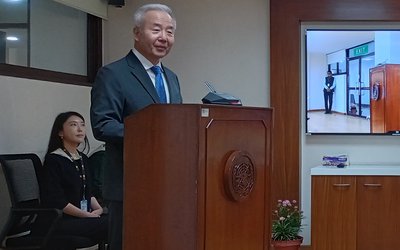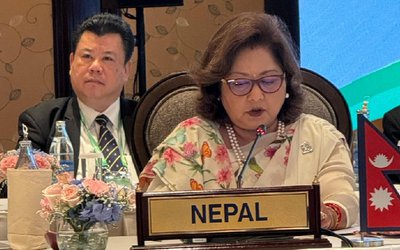
As Nepal Reconstruction Authority (NRA) has started distribution of grants in the earthquake affected districts, a report was released highlighting how to ensure equal land rights for all.
Written by Ruth Jackson, Daniel Fitzpatrick and Prabin Man Singh, Oxfam-Nepal, the report was produced in partnership with five civil Society Organizations, Oxfam, Community Self Reliance Center Nepal (CSRC), Humanitarian Accountability Monitoring Initiative (HAMI), Network of Community Disaster Management Committee (NCOMC) and Himalaya Conservation Group Nepal. The report calls for ensuring equality in land rights and reconstruction in Nepal.
The report says the earthquake recovery is an opportunity to ensure that reconstruction and resettlement policies and program are inclusive of women and those who are landless.
“This is an historic opportunity for all of us to ensure equal rights to women and landless. This report highlights how we can make Nepal’s reconstruction inclusive,” said Jagat Deuja of Community Self Reliance Center Nepal.
The report holds the view that this will help address historic social inequalities and rebuild a stronger and more equal Nepal. After the earthquake more than 117000 people were displaced. Of whom 26,000 are still displaced a year later.
It highlights Nepal’s opportunity to build back better and ensure greater land equality, especially for marginalized people such as Dalit Caste, indigenous (Janjatis), many of whom are also landless and women, .
According to the report, women in Nepal traditionally have limited land rights and access to entitlements. Recent legislation and policies have started to change this; however, entrenched cultural norms mean that whilst the policies may be in place, people chose not to take them up.
Although women consisted of half of the population, majority of them don’t have land in their name. The report suggests there is the need to bring women at the central stage to make reconstruction inclusive. The policies and programs need to fully recognize the rights of women.
The report also stresses the need for resettlement. “For some communities, resettlement will be necessary if they are on the hazard prone (unsafe) land. Resettlement sites should not be too far from their original community so that people can access their agriculture land. If this is not possible, new agricultural land should be provided alongside the land for housing and all necessary facilities supplied.
The report also recommended that additional financial support is needed from the government and INGOs for reconstruction of poorest and most vulnerable. The report argues that Rs. 200.000.00 thousand is not enough. It also suggests that government policies and plans, particularly the Land Bill must include provisions for women and landless people.
The report suggests the government and development partners to undertake a geological survey immediately. The report also recommended that the government and development partners like the World Bank should ensure that resettlement policies and plans are integrated with agriculture land and plans including in the land use bill. The report recommends the government and development partners including the World Bank to ensure reconstruction and resettlement should be community led.
As Nepal is launching the reconstruction drive following the allocation of grant assistance to the victims, only a few organizations have raised the voices of the voiceless. Building Back Right is the first report which categorically raises the issue.
- IME GROUP: Expands Into Paper Industry
- Mar 24, 2025
- CPN UML: Instigated By India
- Mar 23, 2025
- ADB’S CHIEF ECONOMIST: Nepal Reduces Poverty
- Mar 11, 2025
- FM DR. DEUBA: A Successful Visit
- Mar 11, 2025
- MD GHISING: Target Of Personal Grudge
- Mar 09, 2025















